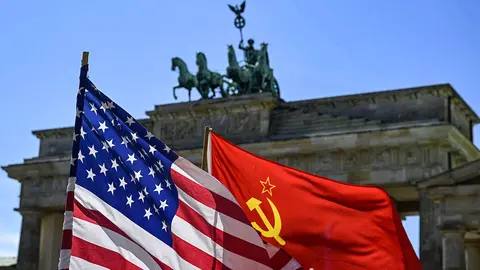A Relentless Cold War

The world refuses to name the current geopolitical situation. Fear of the term Cold War suppresses the truth, but the old patterns of a seemingly concluded war are repeating themselves. This time, with the addition of a new world power that seeks to surpass the others: China. The remnants of the old Cold War are the vehicle for the current struggle for territory and power. The world has been divided in half yet again and everyone is running to join one side or the other, the allies or the enemies, as if everything was that simple.

Colonization has never ceased to exist. Despite the facelift that some powers have tried to carry out, it is difficult to mask the true intentions of controlling territories for economic or ideological interests. China's ambition to dominate the world is no longer hidden behind a wall of ambiguity. The key to its rise to power is the African continent, where other world powers oppose each other so as not to lose their position at the top.
Why Africa? Because, in addition to its internal instability, which allows for external control, the continent is home to a third of the world's natural resources. Whoever controls natural resources, controls the world.
Wagner Group and African Governments
The Wagner Group, after joining the Russian Ministry of Defence at the end of 2023, is focusing its strategies on the African continent. After it was restructured following the death of the organization's director, Yevgeny Prigozhin, many of its’ members have joined version 2.0 of the group, Africa Corps. The economic control of many African countries is dominated by China, something that the United States is trying to combat but with the Achilles' heel of African resentment towards its former colonizers and towards the Western world in general. Because of this, Russia has understood that there is one scope of activity left open: the military.
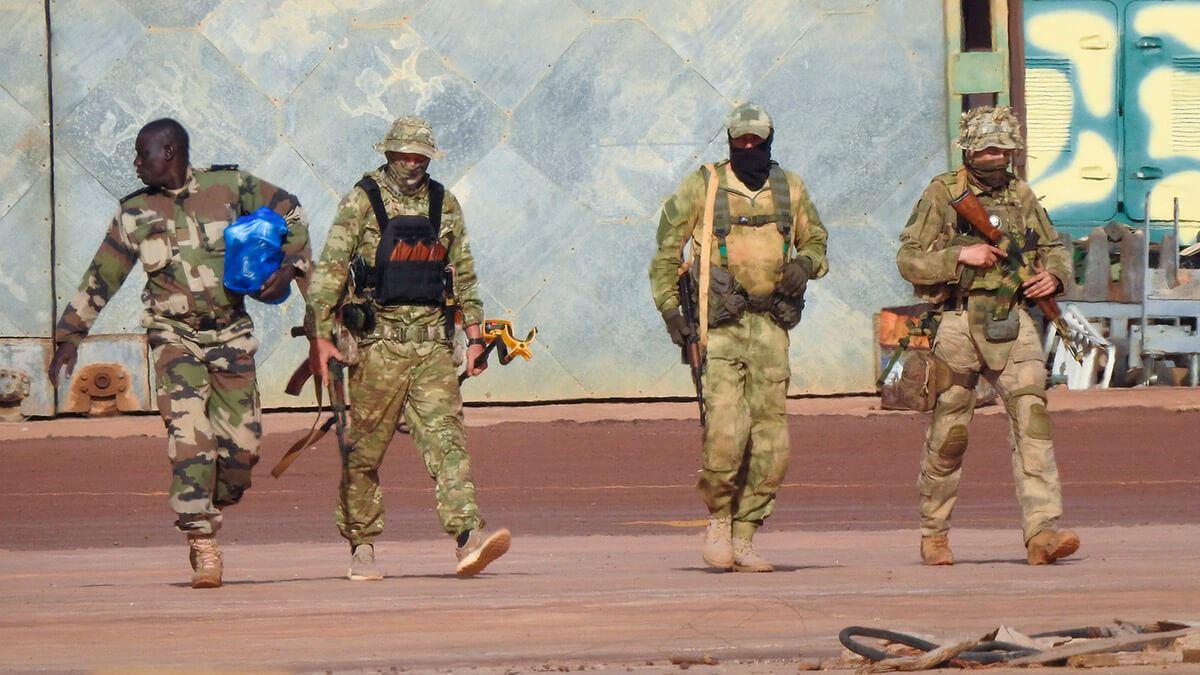
According to a report by the United States’ State Department, the resources most exploited by the Wagner Group are gold, diamonds and timber. The Blood Gold Report at the end of 2023 explains that, as compensation for the aid provided by the Wagner Group to African governments, the payments are accompanied by natural resource extraction rights. The reality is that they have a simple but effective strategy; They establish relationships with African governments to provide military training and climb to the top of the country's military chain. They give their support to a candidate to ensure that that candidate gains power and consequently, they not only cement their position in the country, but they also ensure their control over the extraction of the resources promised to them. This same report stressed that, apart from being an immense source of income for Russia, the activities of this group serve to destabilize the region. This causes an increase in emigration to Europe, something that destabilizes the continent and weakens its opposition to Russia.
To understand the conflicts between the different world powers, one must understand the fierce battle for natural resources. It is no secret that most countries are promoting the "green mark" to encourage the production and use of renewable energy in the face of the depletion of non-renewable fuels. Parallel to this decrease in resources is their increase in value.
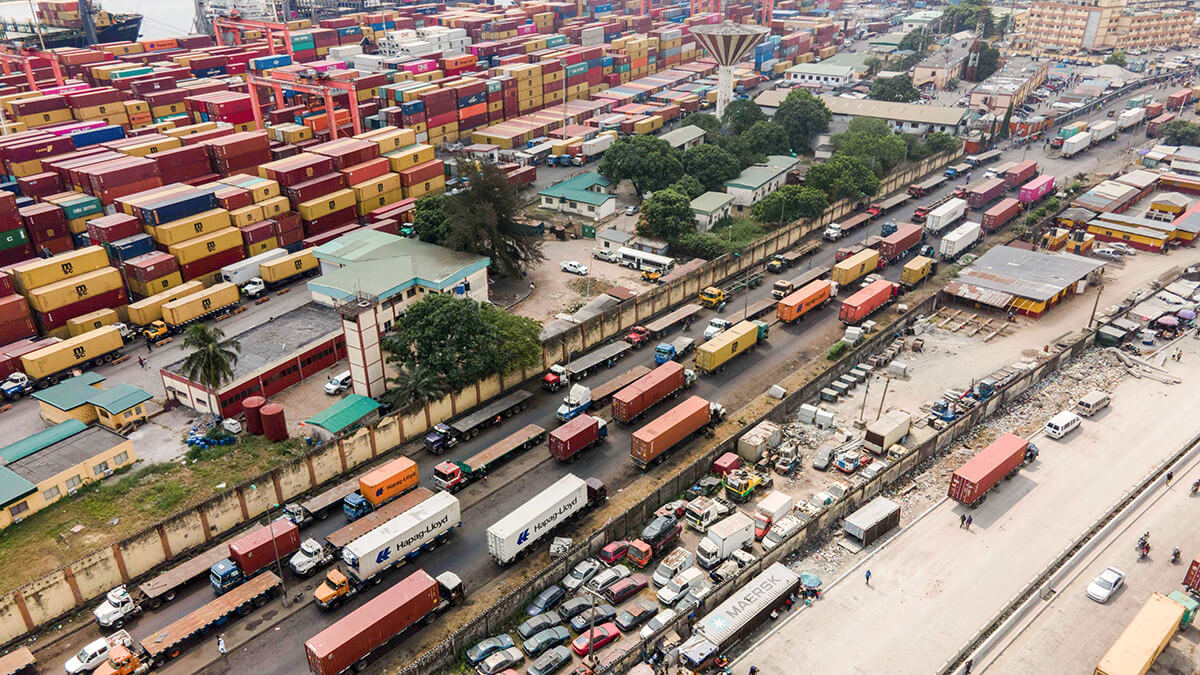
At the heart of the search and struggle for power always lies money. One example is the exchange of gold mining rights in the Central African Republic for the Wagner Group's support of the president. The result, according to the Gold Mine Report, is an annual revenue of $290 million in gold. In Sudan, another country under the military control of the Wagner Group, something almost identical is happening; it is estimated that around $2 billion worth of gold is mined and smuggled each year.
Aside from the value of natural resources themselves, the demand for the minerals that are part of these resources is multiplying exponentially. The report Critical Minerals: Basic Data from the International Institute for Sustainable Development (IISD) predicts that the demand for the minerals needed in the production of green energy will multiply rapidly (for example, the demand for lithium, used in batteries, will multiply by 13 in the next 20 years). This dependence means that whoever controls natural resource repositories, controls the manufacturing of not only every aspect of the green market, but also the world market and its corresponding countries.
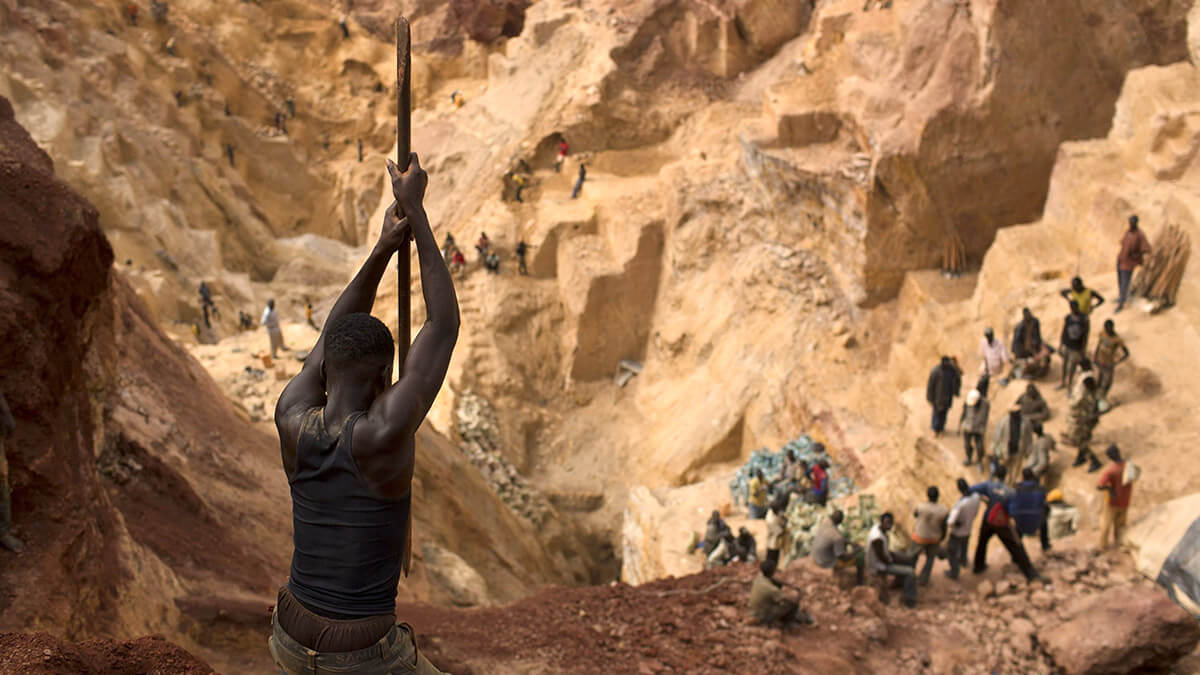
The expansion of Russian military power across the African continent is not going to stop. One of the places that may experience an increase in Russian military influence is the Democratic Republic of Congo. Despite news in 2019 about an agreement between the Kremlin and the Democratic Republic of Congo to send "military specialists" to the country, nothing has been heard since. This country is of interest because, according to the IISD’s Africa of Natural Resources report, the Democratic Republic of Congo has enough critical minerals to meet the needs of half of the world, making it a key country for any world power.
Military control of African countries, coupled with the exploitation of natural resources, gives Russia a significant economic advantage. In addition, its military control solidifies the country’s position in future conflicts on the continent between Western, Asian and Islamic powers (it should be noted that terrorist organizations, such as the African branches of Al Qaeda, have the objective, according to the CIA, of establishing an Islamic state in the north and west of the African continent).
Chinese strings
China's influence in Africa has existed for much longer than it seems. Since the abandonment of former colonies, China has been strengthening relations and its economic position in Africa. Starting with the creation and sale of products cheap enough for Africans to afford in situations of economic devastation, China has been highly involved in Africa’s economic life.
The Asian world power masks its interest in the high concentration of natural resources on the continent, the backbone of its power, with the cooperation with the continent on the premise of improving African life and infrastructures. At the time, China understood the strategic advantage that the control of the African continent would give it and established investment and loan programs ahead of its competitors (Russia and the United States), creating relationships based on trust and securing supply chains.
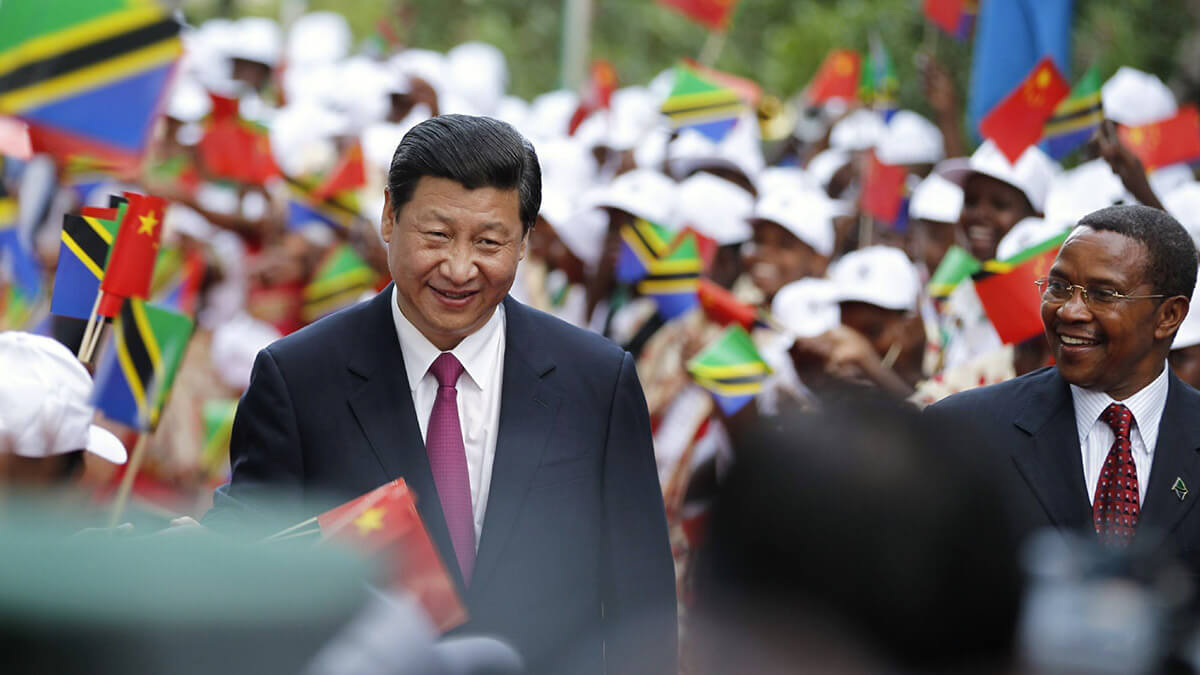
According to a report by Casa África, Chinese investments in Africa do not have governance conditions, whereas investments from the Organization for Economic Cooperation and Development (OECD) do. Apart from the African resentment mentioned above, these conditions are highly dissuasive when it comes to choosing loans or investments. Even so, recently, China has become more involved in the politics of individual countries, for example, in the Sudanese conflict.
Despite the overwhelming absence of information on China's activities in Africa (the Institute for Security Studies estimates that more than half of investments in sub-Saharan Africa are unregistered), the comparison of some data casts doubts on China's intentions on the continent. According to the World Report, the countries with the highest exports to China in recent years have been the Republic of Congo (with enough critical minerals to meet the demand of half the world), Angola (rich in minerals), Zambia (producer of copper and cobalt according to Water Aid) and Sudan (abundant amounts of crude oil). These countries are some of the main recipients of Chinese investments; The correlation between natural resources and "aid" is obvious.
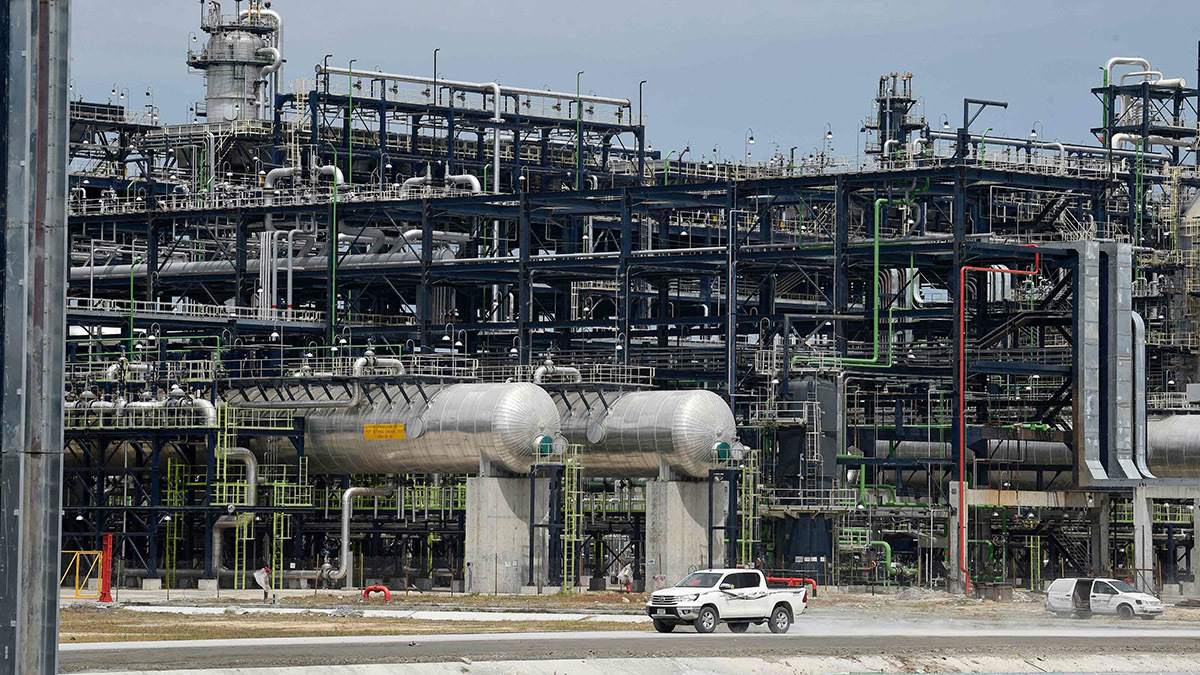
The American rejection
The United States, unlike the other world powers, has lagged behind on the African continent and has been accused by many of employing excessively short-term strategies. These strategies did not anticipate a cold war in a geopolitical framework that included players with much more complex plans.
China began to establish relations with African countries more than 60 years ago; Wagner Group has had a leading role on the continent since 2017 (officially) and the United States waited until 2022 to create a strategy for sub-Saharan Africa. It seems that the United States has realized that the present and future battle for its position as a superpower is, and will be, centred in Africa. In 2022, following the U.S.-Africa Leader’s Summit, Joe Biden announced a $55 billion investment in the continent to "invest in Africa’s people, Africa’s infrastructure, Africa’s agriculture, Africa’s health system, Africa’s security, and more".
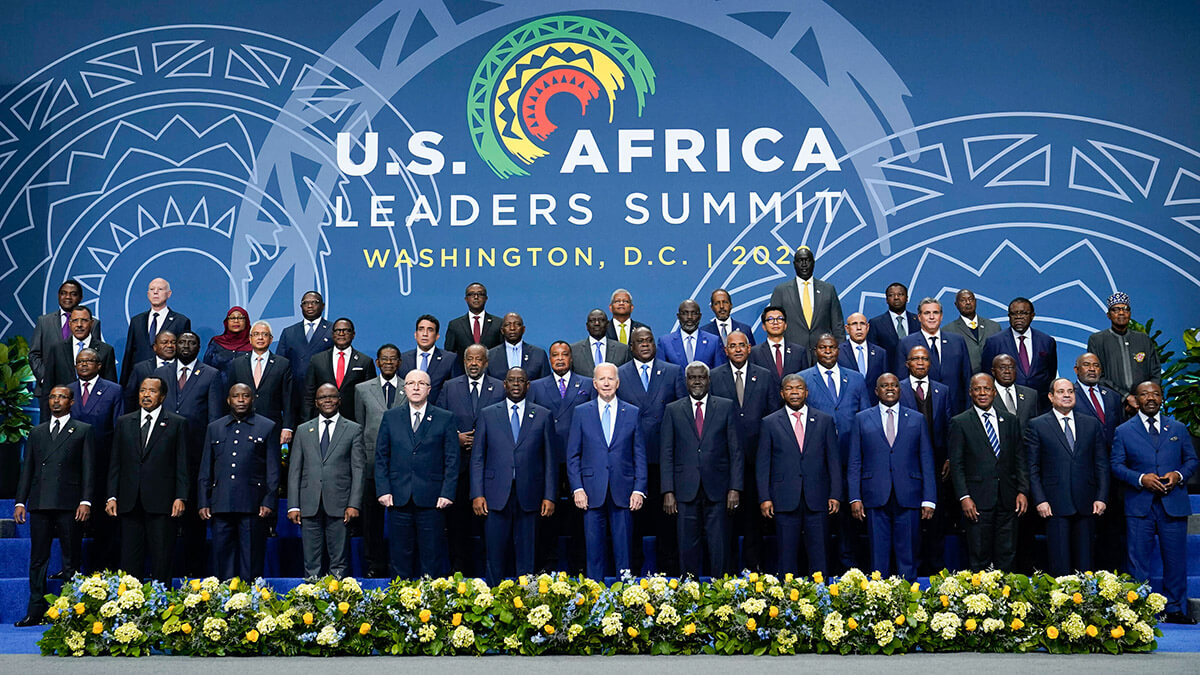
At this summit, Biden proposed lending $21 billion to the International Monetary Fund (IMF) to assist in the recovery of African countries. Even with this increase in funds, many African countries prefer Chinese loans. Why? Because Western loans almost always carry political requirements. In addition to the fact that the implementation of these political requirements is very difficult, many African governments reject Western imposition. The IMF, for example, mandates reforms in economic and financial policies, something that has proven to be very difficult for some countries (the Central African Republic is an example, whose letter of intent highlights the difficulties it faces due to insecurity and humanitarian crises). Concurrently, China offers loans to African countries with economic conditions (unknown due to lack of transparency), not political, something that is more attractive to many African governments.
The United States' strategy is late in a continent that is the epicentre of Chinese and Russian action. China appeals to the need for financing in a continent with an overwhelming lack of capital. Russia appeals to corrupt governments that want to gain and maintain power. The United States has only a little piece of the pie left; its intention to support the continent through lawful and transparent means has arrived too late and without the sufficient strength or understanding to not only be attractive to African countries, but to also help Africa cease to be the battleground for power.

